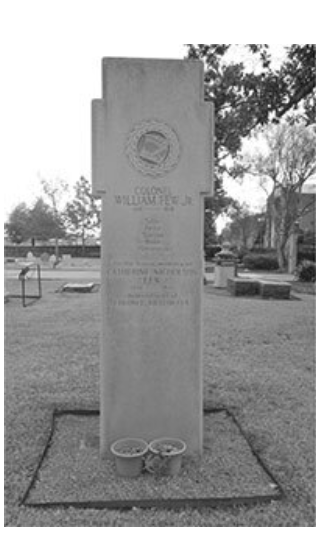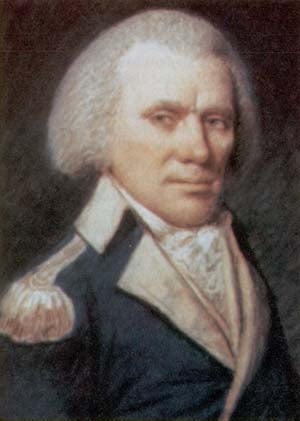If you look up the term “rugged individualist” in the dictionary, there should be a picture of William Few, as he was a man who displayed true American grit.
Sadly, the best modern Augusta has done to honor this founding father and signer of the U. S. Constitution was name a parkway after him, even though he was largely responsible for the creation of Columbia County.
MORE: Augusta mayor’s expense reimbursement critiqued, general counsel search slowed
Few was actually born in 1748 in Maryland, but the family soon decided to pursue farming life on the western frontier of North Carolina. Life on the farm was tough, but the young lad worked alongside his brothers by day and taught himself to read, likely by candlelight when everyone else in the family turned in for the night.
In fact, Few was such an astute learner that he became an entirely self-taught attorney.
When Few was 18, his world would turn upside down. According to Tom Mack, writing in his book, “Hidden History of Augusta,” Few’s family found themselves embroiled in what was called the “Regulator Insurrection.”
Over time, what had been a total rural area began to swarm with immigrants and also elite families wanting to get into the business of plantation agriculture. The economic impact of this hurt the rural farmers and drove many families into debt.
The Crown took advantage of the swelling population by raising taxes and the poor farmers simply could not pay, so they took out loans and they would eventually go into loan default.
Keep in mind that debtor prisons still existed at the time and if the head of the household were sent to jail, the families suffered even more. Ultimately, this caused a violent insurrection that the Royal governor was intent on putting down by any means.
Mack writes that Few had to watch as his brother James was hanged for fighting in the insurrection and the family farm was laid to waste. From there, Few developed a deep hatred for everything British. When the rest of the family moved to Augusta, Few stayed behind so that he could hone his combat skills as a member of the Hillsborough Minutemen.
Few joined his family in Augusta in 1776, just as the Declaration of Independence was being signed in Philadelphia.

In 1778, Few saw combat action for the first time with the Richmond County Militia where they successfully pushed back British regulars and Loyalists invading Georgia from Florida; the militia was able to repeat that success the next year at the Battle of the Burke County Jail, just up the road from Augusta.
Of his exploits at the Georgia/Florida line, Few said: “This was the first time I heard the whistling of bullets and found that these terrible messengers of death lose all their terror in a few minutes.”
Few reached the rank of lieutenant colonel, but figured he was more of an asset to the Patriot cause by offering his legal mind instead of his physical brawn. He was elected to the Georgia General Assembly, where he lobbied for the upper “section of Richmond County break away and the creation of Columbia County.
Such a thing would not happen again until 2022, when Columbia County broke from the Augusta Judicial Circuit and formed its own.
Long after the war, Few was appointed to the constitutional convention, along with Abraham Baldwin and took part in the negotiations, eventually signing the finished document on behalf of Georgia.
According to the New Georgia Encyclopedia, he later served four years as a U.S. senator, one term as a state representative, and three years as judge of the Second Judicial District in Georgia.
Remembering his family’s financial struggles when he was young, Few also got into banking and eventually moved to New York when he was appointed federal commissioner of loans. There is no record of Few ever sending anyone to a debtor’s prison and the practice was abolished in 1833.
When Few died, he was buried in Manhattan. However, since he was a lifelong resident of Augusta, the city petitioned for his remains to be moved back to Augusta. Few was reinterred at St. Paul’s Episcopal Church Cemetery in 1976, the 200th anniversary of the nation he helped create.
…And that is something you may not have known.
Scott Hudson is the Senior Investigative Reporter and Editorial Page Editor for The Augusta Press. Reach him at scott@theaugustapress.com










